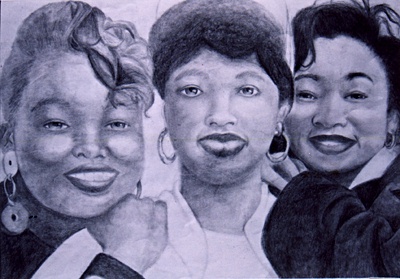All Nonfiction
- Bullying
- Books
- Academic
- Author Interviews
- Celebrity interviews
- College Articles
- College Essays
- Educator of the Year
- Heroes
- Interviews
- Memoir
- Personal Experience
- Sports
- Travel & Culture
All Opinions
- Bullying
- Current Events / Politics
- Discrimination
- Drugs / Alcohol / Smoking
- Entertainment / Celebrities
- Environment
- Love / Relationships
- Movies / Music / TV
- Pop Culture / Trends
- School / College
- Social Issues / Civics
- Spirituality / Religion
- Sports / Hobbies
All Hot Topics
- Bullying
- Community Service
- Environment
- Health
- Letters to the Editor
- Pride & Prejudice
- What Matters
- Back
Summer Guide
- Program Links
- Program Reviews
- Back
College Guide
- College Links
- College Reviews
- College Essays
- College Articles
- Back
has the change in women's role affected them in society?
In history women have been seen as weak and unable. Women have wanted to participate in society, not only at home with kids and doing the home labors. Despite this, many women have tried to do the best for their lives and improve their image in the society showing that they can achieve their goals in life.
According to “Myth of the Perfect Family”, prior to industrialization men and women shared jobs on farms and made most of what they needed to survive. In the article “Women’s participation in politics: a view from the Caribbean”, women population over world is about 50%, almost the same as men population. Rosalyn Sussman Yalow an American medical physicist stated “we still live in a world in which women, believe that a woman belongs exclusively in the home.”( Lee Lerner, Brenda Wilmoth Lerner, and Adrienne Wilmot Lerner. ) Western society still wants women to stay at home taking care of the children and house: and the only ones who can work are men.
In the above article true women are encouraged to see their roles as wife, mother and housekeeper, if not they were not seen as true women. Virtues that any woman should have were “piety, purity, submissiveness and domesticity.” (Lee Lerner, Brenda Wilmoth Lerner, and Adrienne Wilmot Lerner. ) These made women being seen as real wives and women. According to “Introduction to Work and Gender Roles” women who wanted to participate in college, the workforce or civil life were portrayed as masculine and usually unattractive. Many women have separated their professions from their own life with their families.
Although women have been seen as not real women if they want to have a social life than staying at home only, different changes have helped them to struggle the critics and problems in the society. For example in the islands of Dominica, Guyana, St. Lucia, Bermuda , Jamaica and the Republic of Trinidad and Tobago have been able to involve women in politics, states “Women’s Participation in Politics: a View From the Caribbean.” In 1995, the first woman was nominated to sit in the legislative council according to “Women’s Participation in Politics: a View From the Caribbean.” “The Myth of the Perfect Family” says that “reformers such as Susan B. Anthony began campaigning for women’s equality both legal and social. Thanks to their efforts, women received the right to vote in 1920.” (Lee Lerner, Brenda Wilmoth Lerner, and Adrienne Wilmot Lerner. ) Women started to involve into the right to vote as well as men. However women are not treated 100% as men are treated in the society. Women don’t get the same salary than men do. There is still some kind of discrimination. In addition, women are less common to participate in politics than men. Women don’t feel total support from society in comparison to men.
The fact that women have wanted to change their roles in society has been affected them positively. Women received the right to vote thanks to the efforts of other women who wanted to be part of the society. Women have been able to study and be professionals, despite all the critics and comments in the society. Also women have been wives, mothers, and workers and can manage their time and act as any person in society as well as men. However there is not a complete involvement of women in society because of the lack of support from men and their own families.
WORKS CITED
Adrienne Wilmot Lerner, Brenda Wilmoth Lerner, and Lee Lerner. “Myth Of the Perfect Family.”Family in Society: Essential Primary Sources. Ed. K. Detroit: Gale, 2006.12-16. Gale Opposing Viewpoints In Context. Web. 21Nov. 2012.
Ingrid A, Moses-Scatliffe, “Women’s participation in politics: a view from the Caribbean.”
Canadian Parliamentary Review Autumn 2012: 6+. Gale Opposing Viewpoints In Context. Web. 28 Nov. 2012.
Adrienne Wilmot Lerner, Brenda Wilmoth Lerner, and Lee Lerner. “Introduction to Work and Gender Roles.” Family in Society: Essential Primary Sources. Ed. K. Detroit: Gale, 2006. 213. Gale Opposing Viewpoints In Context. Web. 29 Nov. 2012

Similar Articles
JOIN THE DISCUSSION
This article has 0 comments.
